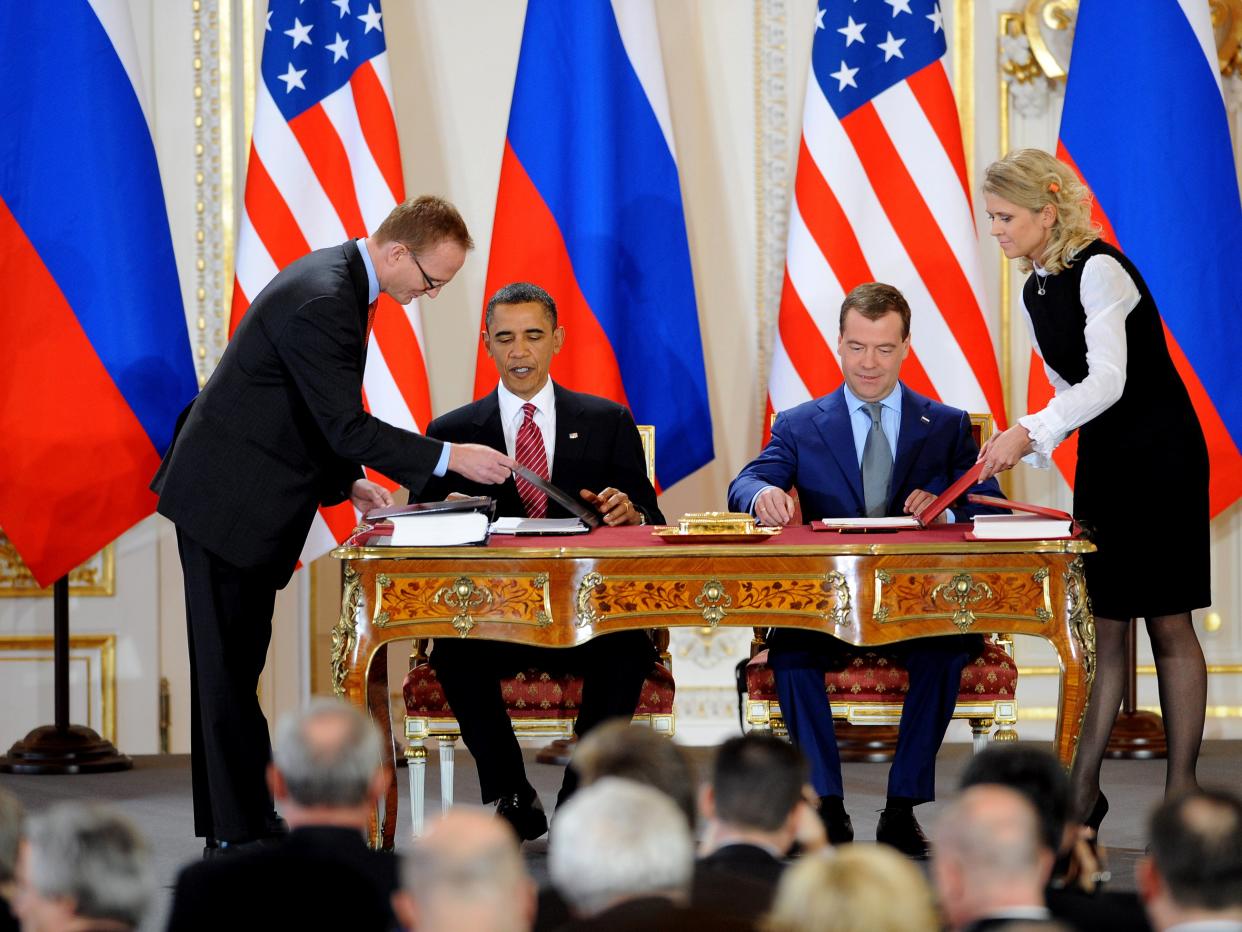Biden asking Russia for five-year extension on nuclear arms treaty while also hoping to hold Moscow ‘accountable’ for aggression
- Oops!Something went wrong.Please try again later.

The Biden administration is seeking a five-year extension to the New START nuclear arms treaty, which expires on February 5. Not extending the treaty would mean that the US and Russia could send out an unlimited number of nuclear-armed submarines, bombers and missiles. Russia is also in favour of an extension.
Some experts feared that not extending the treaty could lead to a new nuclear arms race. The Trump administration tried to negotiate a shorter extension to the treaty in its waning days but ultimately failed after Mr Trump's Special Presidential Envoy for Arms Control, Marshall Billingslea, tried to get China to join the agreement, a requirement which was later dropped.
The Biden administration is not interested in holding back on an extension to get China included in the treaty since Russia's nuclear arsenal “is at least 10 times the size of China’s," an official told The Washington Post.
The New Strategic Arms Reduction Treaty, (New START) was signed in Prague in April 2010 by President Barack Obama and Russian President Dmitry Medvedev. It restricts the deployed nuclear warheads to 1,550 for each nation and strategic delivery systems to 700 each.
Unlike many previous administrations, the Biden team is not seeking a reset in US-Russia relations, but will instead inflict new costs on the country after getting new intelligence assessments of its recent actions. Previous administrations have at the start of their terms tried to turn down the temperature on the US-Russia relationship in the hopes of a better relationship between the global powers.
Secretary of State nominee Antony Blinken told lawmakers that sanctions passed by Congress would be “extremely helpful in being able to impose ... costs and consequences," adding that the treaty gets the US “tremendous access to data and inspections” and that an extension of the treaty was in the national interest of the US.
An anonymous US official told The Washington Post that they will "hold Russia accountable for their reckless and aggressive actions that we’ve seen in recent months and years".
The same official added that the treaty is "in the national security interest of the United States and makes even more sense when the relationship with Russia is adversarial".
Read more: Follow live updates on the start of the new Biden presidency
President Biden is asking newly confirmed Director of National Intelligence Avril Haines for an assessment of Russia's use of chemical weapons against opposition leader Alexei Navalny, who was immediately arrested upon his return to the country, of Russia's interference in the 2020 election, bounties on American soldiers in Afghanistan and of the massive cyberattack on US government agencies, which has been blamed on Moscow by numerous experts.

Mr Biden's National Security Adviser Jake Sullivan tweeted that "Mr Navalny should be immediately released, and the perpetrators of the outrageous attack on his life must be held accountable".
Mr. Navalny should be immediately released, and the perpetrators of the outrageous attack on his life must be held accountable. The Kremlin’s attacks on Mr. Navalny are not just a violation of human rights, but an affront to the Russian people who want their voices heard.
— Jake Sullivan (@jakejsullivan) January 17, 2021
The last leader of the Soviet Union, Mikhail Gorbachev, said in an interview with Russian state news agency TASS that "after the treaty has been extended, we must move on. In two or three years’ time, a more ambitious treaty can be negotiated".
Angela Stent, an intelligence official focused on Russia during the administration of George W Bush told The Washington Post that “This will be the first post-Soviet US administration that has not come into office vowing to forge a warmer relationship with Russia".
Read More
Capitol rioter who stole Pelosi’s laptop released from jail
Russia reacts to inauguration of ‘old man’ Joe Biden
Germany's Merkel stands by Russia pipeline that US opposes

